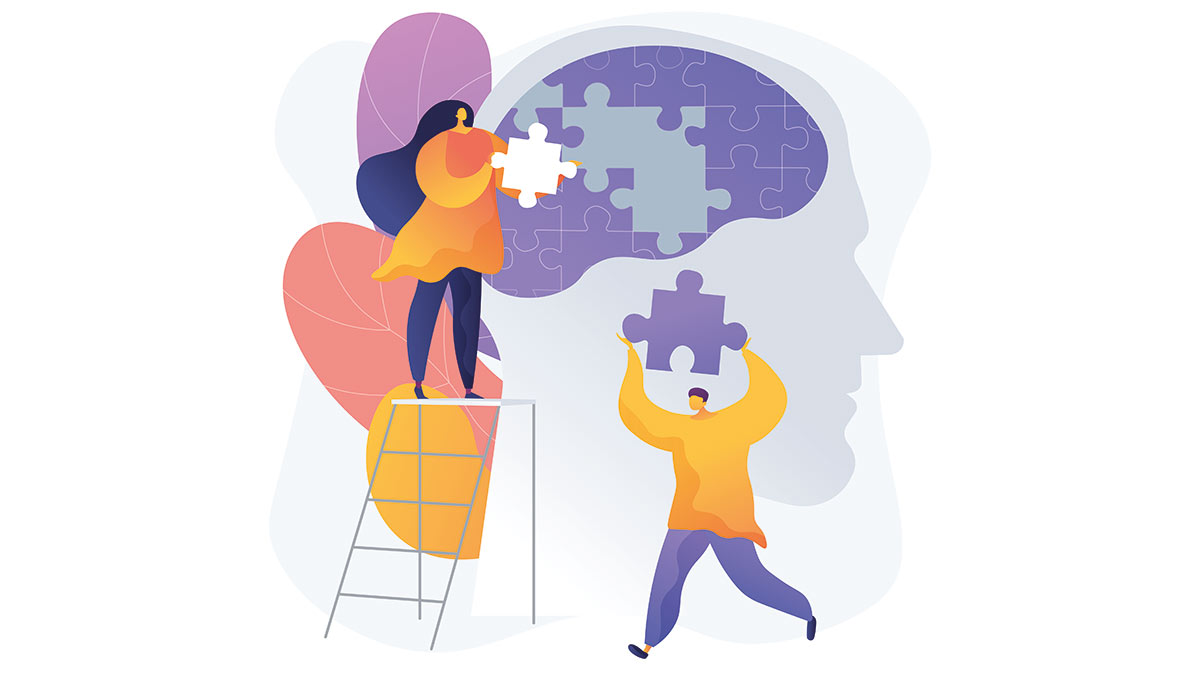Associate professor of practice at IIM, Kozhikode
mana eva manuṣyāṇāṃ kāraṇaṃ bandhamokṣayoḥ
[As the mind, so the person; bondage or liberation are in your mind]
–Brahmabindupanishad
Can you trick your body into thinking itself younger and fitter? Harvard psychologist Prof Ellen Langer, also called ‘mother of mindfulness’, says absolutely! In The Mindful Body, she argues that mindless living causes most physical problems and that the right mental attitude can reverse illness. When we think we know ourselves, we sleepwalk through life, never learning anything new. Instead, she advises us to live mindfully, meaning that we pay attention to details in our body.
Western medicine tells us that we get sick from infections or degeneration. This assumes that our minds and bodies operate independently. This view is obsolete, thanks to psychological research that advocates mind-body integration: the idea that our minds and bodies influence each other. Ageing, youth and fitness are mindsets. Your mindset can limit or expand your physical ability, as demonstrated by Dr Langer’s famous ‘counter clockwise study’of 1979. She got a group of frail elders aged around 80 to spend a week at a retreat with music, politics and movies―all retrofitted like it was 1959. Participants were asked to live exactly like they did 20 years earlier, making their own meals and doing laundry (under supervision, of course). They had to discuss events of 1959 using present tense. After a week, participants reported improved markers of vision, hearing, memory and muscle strength; they even looked noticeably younger, all without medical intervention.
Langer’s team also demonstrated how beliefs impacted fitness. They asked housekeeping staff in hotels whether they got any exercise. Since the staff believed that exercise was what you did after work, they said no. The team showed them how elements of their work, like walking and turning over mattresses, constituted cardiovascular activity. With only altered beliefs around exercise and no change in workload, participants lost weight and built muscle. Mindsets also determine our energy levels from sleep. In WLanger’s sleep lab, participants slept while the team secretly adjusted the clocks on the wall to run at double or half their normal pace. After participants woke up, their energy markers varied based not on the actual time they slept but on their perception of time, depending on the clock they saw.
The point isn’t that we have no limits, but that we don’t know what our limits are. If you start with mental limits, your body limits itself physically. Langer’s study shows that when you ask healthy people to do 100 jumping jacks, they get tired at around 70, but if you ask a similar group to do 200 jumping jacks, they are fatigued at around 140. Fatigue is thus a mental construct and its markers are contextual: this is why you are exhausted from a long day at work, than when you play cricket with your child for hours. Similarly, Langer noticed that people experienced difficulty reading alphabets about two-thirds down the list on eye tests; she designed a test where the starting letters were themselves two-thirds the original size. Unsurprisingly, patients were able to read until two-thirds down the list, where letters were much smaller than usual. Physical phenomena are thus subjective: all ‘objective’data, medical or otherwise, must be considered probabilistic, not absolute.
Consider the CAT exam whose cutoff for IIMs hovers around 98 percentile. If your child makes 98, they are labelled brilliant and if they make 97, they are labelled no-good, even though there is objectively little difference between 97 and 98. Is that sensible? In another Langer experiment, doctors advised prediabetic patients that their sugar levels put them at high risk for diabetes. Patients with sugar levels right below prediabetic were advised that they weren’t at risk. Prediabetic patients were more likely to test diabetic in subsequent checkups. I am not suggesting that you ignore your physician, please don’t. Understand, however, that every diagnosis is probabilistic, not absolute. It is when we take medical advice as absolute, like ‘I’ll never run again because of arthritis’that we limit our bodies.
How can you apply this to your daily life? Langer advises us to be mindful of physical variability. Check in with yourself daily at irregular intervals by setting alarms on your phone. Even if you are in chronic pain, you likely have moments of calm amid the agony. At each interval, ask yourself, ‘how am I feeling, and why?’ When you feel positive, notice what you did within your control to cause that. Instead of always feeling tired, you will notice it happens under specific conditions, and you will look for ways to avoid them. That’s mindful living. Your body changes all the time, so paying attention to it opens up the possibility of recovery, weight loss or healthy ageing.
Excellent health starts with your mind. Mind it.


